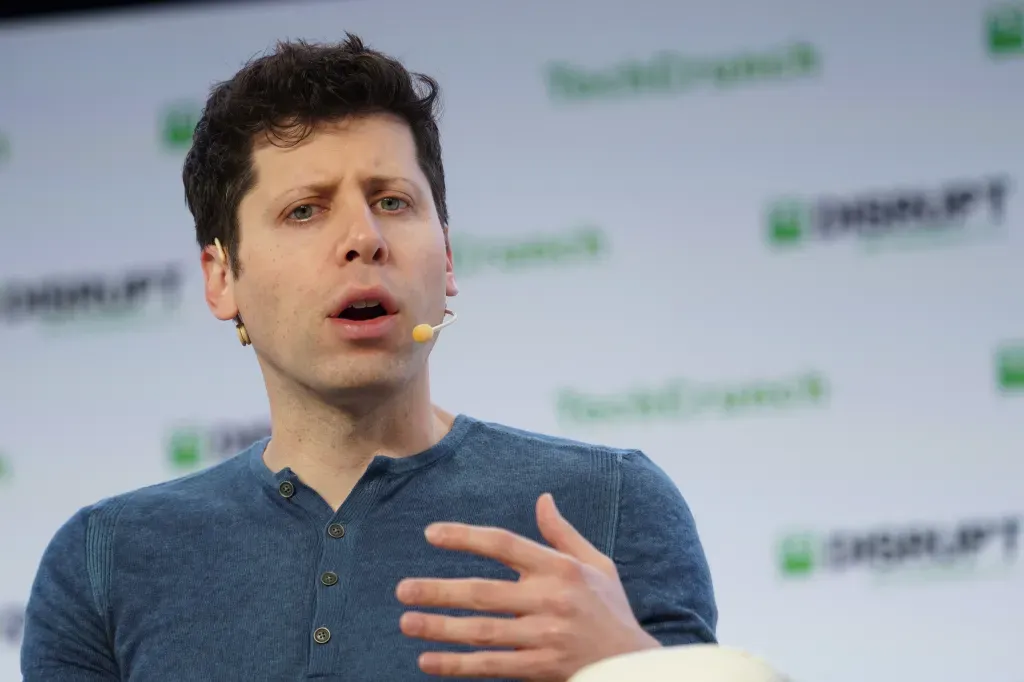Sam Altman Compares AI Boom to the Dot-Com Bubble
-

In an interview with The Verge, OpenAI CEO Sam Altman was asked whether the hype around artificial intelligence could be considered a “bubble.” He drew a direct comparison to the dot-com boom of the 1990s.
“Are we at a stage where investors are generally overvaluing AI? I think yes. Can the emergence of AI also be considered one of the most important events in a very long time? I also think yes.”
— Sam Altman, CEO of OpenAIAltman explained that historically, bubbles tend to form around real innovations. Investors often “get carried away when they see a kernel of truth,” he said. The internet, for example, was transformative, “but people simply got overexcited.”
Still, Altman pointed to what he sees as excesses in the current AI market:
“When three-person AI startups raise money at sky-high valuations — that’s madness.”
According to him, some will lose phenomenal amounts of money, but others — though it’s impossible to predict who — will make fortunes. “I personally believe, though I could be wrong, that overall this will be a huge positive for the economy,” he added.
OpenAI’s Growing Pains
Altman admitted that OpenAI “really messed up a few things” during the rollout of GPT-5, but said the company has “learned the lesson” of what it means to launch a product for “hundreds of millions of people overnight.” He noted that many users actually liked the new model-switching feature, even though the process wasn’t flawless.
“Right now, we’re forced to make terrible compromises. We have more advanced AI models, but we can’t release them to users because we simply don’t have enough capacity.”
Scaling Challenges
Altman highlighted that ChatGPT is already the fifth most-visited website in the world, but scaling further has been limited by a shortage of computing power. To fix this, OpenAI is preparing to invest massive sums into infrastructure:
“In the near future, we’ll correct this — we’re going to spend trillions of dollars building data centers.”
-
Sam Altman’s take is spot on — bubbles always form around real innovation. The AI hype may be overheated, but the underlying technology is transformative. Just like the internet, the short-term noise will fade, and the long-term impact will reshape everything.
-
The scaling challenge is fascinating. Imagine having models ready but being bottlenecked by compute power. If OpenAI really spends trillions on data centers, that could mark the beginning of a new “infrastructure era” for AI, similar to how railroads or power grids changed economies.
-
-
Altman’s honesty here is refreshing. The dot-com comparison is perfect — bubbles form because the underlying tech is real, but investors overshoot. The internet boom created both Pets.com and Amazon. We’re going to see the same with AI: a flood of startups with unsustainable valuations, most of which will collapse, but the few that survive will shape the economy for decades.
The real eye-opener is his comment about capacity. The fact that OpenAI has models ready but can’t release them due to compute shortages tells us two things:
1️⃣ We’re still early in AI’s scaling curve.
2️⃣ The next industrial boom may be hardware + infrastructure, not just software.If OpenAI and others are seriously planning to spend trillions on data centers, that means the AI “bubble” is also an energy and semiconductor supercycle in disguise.
-
This post is deleted!
-
The “AI bubble” talk makes sense, but the bigger concern to me is the concentration of power. Altman admits OpenAI has more advanced models it won’t release due to compute limits. That’s partly technical, but it’s also about control. If only a handful of companies have the resources to train and deploy frontier AI, then innovation bottlenecks around those gatekeepers.
The trillion-dollar data center comment is also staggering. Who’s going to finance that scale of investment? And what’s the environmental cost of running those facilities at the power levels required? The dot-com boom left us with fiber-optic cables and broadband that fueled decades of growth. The AI boom might leave us with massive energy demands and hardware dependencies unless it’s managed carefully.
So yes, AI is transformative, but the “bubble” narrative shouldn’t distract from the harder questions: who controls the models, who pays for the infrastructure, and who bears the costs if this all scales too fast?

















